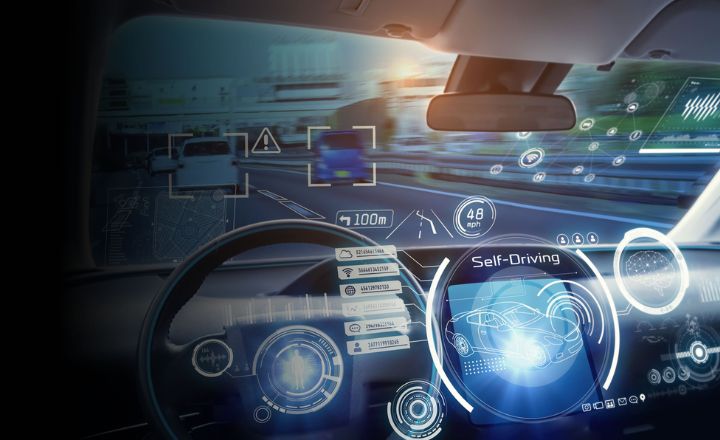The automotive industry stands as a cornerstone of modern civilization, revolutionizing transportation, mobility, and technological advancement. This article explores the multifaceted world of automotive technology, manufacturing, sustainability, challenges, and the evolving landscape in a global economy.
Evolution of Automotive Technology
Since its inception, the automotive industry has undergone significant transformations:
Early Innovations: From the invention of the automobile by Karl Benz in the late 19th century to the mass production techniques pioneered by Henry Ford, which democratized car ownership.
Technological Advancements: Introduction of electric starters, automatic transmissions, safety features (e.g., seat belts, airbags), and computerized systems that enhance performance, efficiency, and safety.
Digital Revolution: Integration of onboard computers, GPS navigation, infotainment systems, and connectivity features that enhance driver experience and vehicle functionality.
Automotive Manufacturing Processes
Automotive manufacturing involves complex processes to produce vehicles efficiently and with high quality:
Design and Engineering: Development of vehicle prototypes, testing for safety and performance, and integrating advanced technologies into vehicle systems.
Production and Assembly: Assembly line manufacturing, robotics, and automation to streamline production, reduce costs, and ensure consistency in vehicle assembly.
Supply Chain Management: Coordination of suppliers, logistics, and global sourcing of components, ensuring timely delivery and production efficiency.
Sustainability Initiatives in Automotive
The automotive industry is increasingly focused on sustainability and environmental responsibility:
Electric Vehicles (EVs): Advancements in battery technology, range improvements, and infrastructure development to promote adoption of electric cars.
Fuel Efficiency: Development of hybrid vehicles, clean diesel engines, and lightweight materials (e.g., carbon fiber, aluminum) to reduce fuel consumption and emissions.
Recycling and Circular Economy: Recycling automotive components, adopting closed-loop manufacturing processes, and reducing waste in vehicle production.
Challenges Facing the Automotive Industry
Despite its advancements, the automotive sector faces several challenges:
Regulatory Compliance: Adhering to stringent emissions standards, safety regulations, and evolving legal frameworks in different regions.
Technological Integration: Managing complexity in integrating new technologies (e.g., autonomous driving, AI, connected vehicles) while ensuring reliability and cybersecurity.
Consumer Preferences: Shifting demands for greener vehicles, connectivity features, and personalized mobility solutions influencing product development and marketing strategies.
Innovations Shaping the Future of Automotive
The automotive industry continues to innovate with transformative technologies and consumer-driven trends:
Autonomous Vehicles: Development of self-driving cars, sensors, AI algorithms, and advanced driver-assistance systems (ADAS) for enhanced safety and mobility.
Mobility-as-a-Service (MaaS): Integration of ride-sharing platforms, car-sharing services, and subscription models that offer flexible and cost-effective transportation options.
Connected Vehicles: IoT connectivity, vehicle-to-vehicle (V2V) communication, and smart infrastructure to optimize traffic flow, enhance navigation, and improve driver experience.
Consumer Trends and Future Outlook
Consumer behaviors and preferences are shaping the future of automotive design and innovation:
Personalization: Customizable features, interior design options, and infotainment systems that cater to individual preferences and lifestyles.
Environmental Consciousness: Increasing demand for eco-friendly vehicles, sustainable materials, and transparency in manufacturing processes.
Digital Transformation: Integration of AI, voice recognition, and predictive analytics to deliver personalized driving experiences and predictive maintenance.
Global Impact and Economic Significance
The automotive industry plays a pivotal role in global economies, employment, and technological advancement:
Economic Contribution: Contribution to GDP, job creation, and supply chain industries (e.g., manufacturing, technology, logistics) that support automotive production.
Global Trade: International trade in vehicles, components, and aftermarket services, driving economic growth and global interconnectedness.
Technological Collaboration: Cross-industry partnerships, research collaborations, and innovation hubs that accelerate advancements in automotive technology and mobility solutions.
Conclusion
In conclusion, the automotive industry continues to drive innovation, shape mobility, and influence global economies with transformative technologies and consumer-driven trends. By embracing sustainability, technological integration, and consumer-centric design, automotive manufacturers can navigate challenges, meet regulatory standards, and seize opportunities in a rapidly evolving marketplace. Understanding the dynamics of automotive technology and mobility empowers stakeholders to innovate responsibly, promote sustainable practices, and redefine the future of transportation for a connected and mobile society. As the industry evolves with technological advancements, regulatory changes, and shifting consumer expectations, collaboration and strategic foresight will be essential to shaping a future where automotive innovation enhances safety, efficiency, and accessibility for all.
